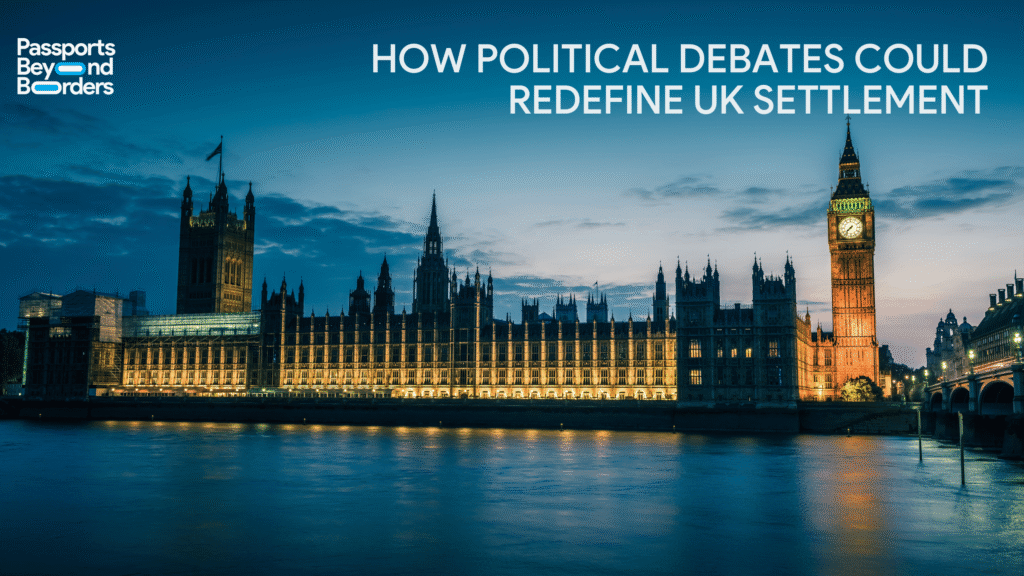The path to Indefinite Leave to Remain (ILR) in the UK is currently a major focus of political debate, with proposals that would fundamentally reshape how migrants settle in the country. This analysis, based on recent positions from key political parties, highlights the divergent and often stringent approaches to settlement criteria.
A Shift to Longer Waiting Periods and “Earned” Settlement
Under the current immigration rules, most migrants on work or family visas can typically apply for ILR after five years of continuous lawful residence. However, this standard is under threat as major political parties propose to extend the qualifying period significantly.
The Labour Party plans to increase the period of eligibility from five years to 10 years. This longer wait would be accompanied by a new, more rigorous set of conditions that migrants must meet, reflecting a shift toward a “contribution” approach. The proposal suggests immigrants would have to actively “earn” their place in the UK to progress to ILR status.
Under Labour’s plans, the new conditions would be subject to consultation but are expected to include demonstrating higher English proficiency, providing evidence of community contribution (such as through volunteering), maintaining lawful employment and National Insurance contributions, and proving no receipt of benefits.
The Conservative Party has also proposed that new migrants would have to wait 10 years before being eligible to apply for ILR. Furthermore, the Conservatives have suggested applicants would face an additional five-year wait after obtaining ILR before becoming eligible to apply for British Citizenship.
Abolition of the Settlement Pathway
Taking the toughest stance, Reform UK has announced plans to abolish the ILR qualifying route for permanent settlement entirely. Instead of a path to permanent residency, the party would create a new system requiring migrants to apply for a new visa every five years if they continue to meet qualifying requirements. Critically, Reform UK has stated this fundamental change would apply to both newcomers and migrants already residing in the UK.
Join our WhatsApp community here.
Exemptions and Current Requirements
Despite the strong political momentum toward a longer waiting period, there are explicit exceptions. Partners of British citizens and victims of domestic abuse will continue to qualify for settlement after five years.
While these party positions indicate the direction of future legislation, the current rules remain in force. As of today, migrants must generally still meet criteria that include: demonstrating at least intermediate English proficiency (B1 level), passing the Life in the UK test, having no serious criminal convictions, and adhering to limits on time spent outside the UK during their qualifying period.
The political consensus is clearly moving toward a more demanding settlement pathway, making the journey to permanent residency in the UK more challenging for future migrants.
Implications for Your Long-Term Future
The ongoing policy debate reflects a broader national discussion about the role of migration in the UK economy.
- Stricter conditions could affect job security and long-term planning for international workers and their families.
- More flexible proposals could encourage skilled migrants to invest more confidently in their UK futures and careers.
It’s vital to stay informed. Keep abreast of all policy updates through the official UK Home Office releases, as changes are likely to be implemented in the next legislative term.
References
House of Commons Library (2025). Changes to UK visa and settlement rules after the 2025 immigration white paper
The Migration Observatory (2025). Net migration to the UK
Subscribe to our for the latest updates Newsletter. You can also join our WhatsApp community here.
Disclaimer
The content published on this website (including articles, blog posts, guides, and any other materials) is for general informational purposes only. It is provided by Passports Beyond Borders in good faith, but should not be construed as formal legal, immigration, financial, tax, or professional advice. We encourage you to always consult with a qualified, regulated immigration lawyer, solicitor, or licensed immigration professional (such as an immigration consultant, where applicable) before making any decisions related to visa applications, employment, travel, or residency.

